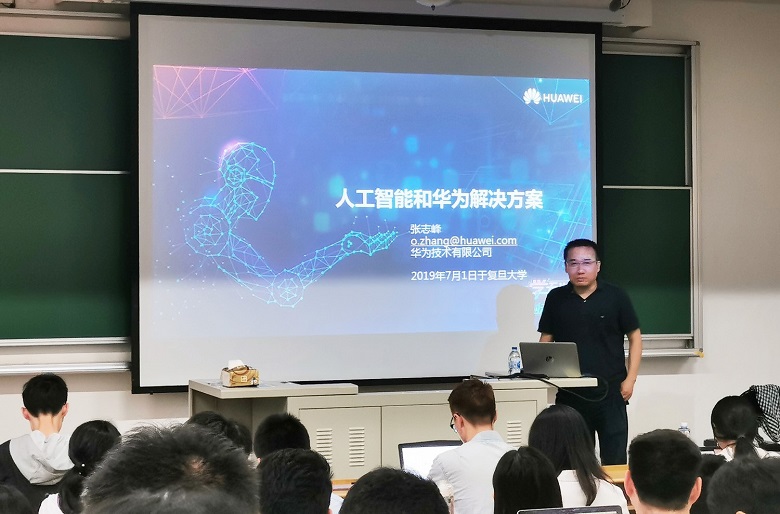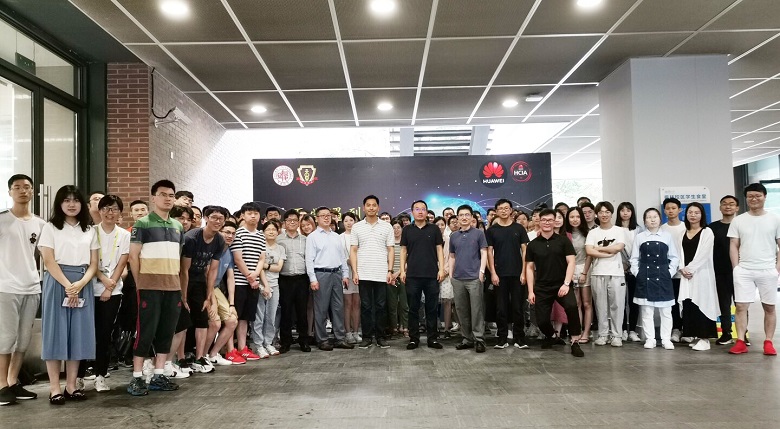[Shanghai, China, July 8, 2019] Huawei and the School of Basic Medical Sciences at Fudan University have recently begun to jointly offer a course in "Medical Artificial Intelligence and Machine Learning", attracting more than 120 undergraduate and graduate students from Fudan University's medical school and affiliated hospitals. This is China's first systematic course introducing artificial intelligence (AI) in medicine. This course will help students quickly learn about the latest AI innovations and information in the medical industry and academia, and explore the applications of AI in the medical field.

Zhang Zhifeng, chief architect of Huawei's AI certification, is giving a presentation
Thanks to the development of AI technologies, they are increasingly applied in the medical field, playing a leading role in areas such as medical imaging diagnostics , electronic medical records, drug discovery and omics data analysis. The course "Medical Artificial Intelligence and Machine Learning" is worth 3 credits, including 44 class hours of theory training and 16 class hours of experiments. It covers the application of AI in three major biomedical scenarios, including medical imaging, omics data analysis, and electronic medical records. Trainers of this course include experts and scholars such as Zhang Zhifeng, chief architect of Huawei's AI certification, Liu Yun, professor of the School of Basic Medical Sciences at Fudan University, Han Jingdong, professor of CAS-MPG Partner Institute for Computational Biology, and Xie Zhi, professor of Zhongshan University.

Zhang Zhifeng and professors and students from Fudan University
This innovative course is a result of the school-enterprise cooperation between Huawei and Fudan University. Huawei together with Professor Liu Yun developed the course, compiled teaching materials and pamphlets, and designed experiments. This course combines theory with practice. It is devoted to help students strengthen their understanding of medical AI theory, and learn to apply the theory to solve practical medical problems, and have fundamental knowledge about the application scenarios and methods of medical AI technologies.
Huawei has invested a lot in the development and innovation of AI technologies. In the medical field, Huawei is committed to using AI to resolve world's major technical problems. So far, Huawei has taken the lead in applying AI in areas such as cervical cancer diagnosis, ultrasonic measurement, stroke treatment, and lung nodule detection. Huawei's innovative AI algorithms used in medical AI chips, medical diagnosis, and pathological screening are also world-leading in terms of accuracy and speed. To facilitate the digital transformation of enterprises and social organizations, Huawei has developed multiple AI certification courses, including HCIA-AI, HCIP-AI HiAI Developer, and HCIP-AI EI Developer. These courses are designed to develop more professionals who are capable of AI development and innovation.